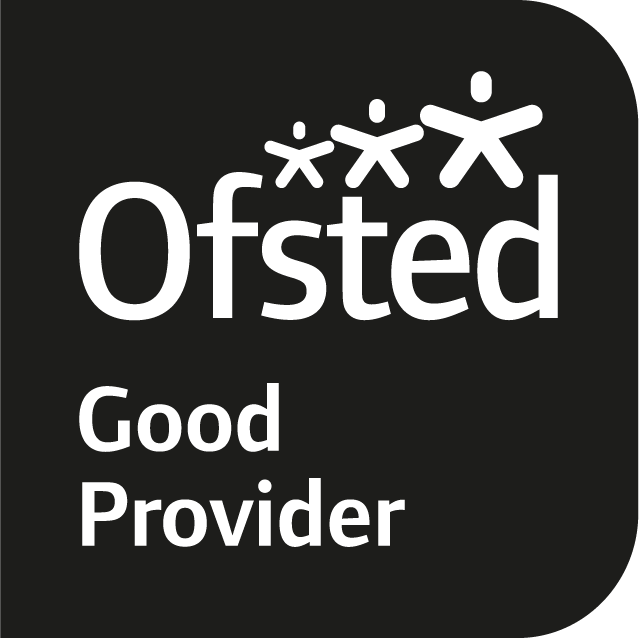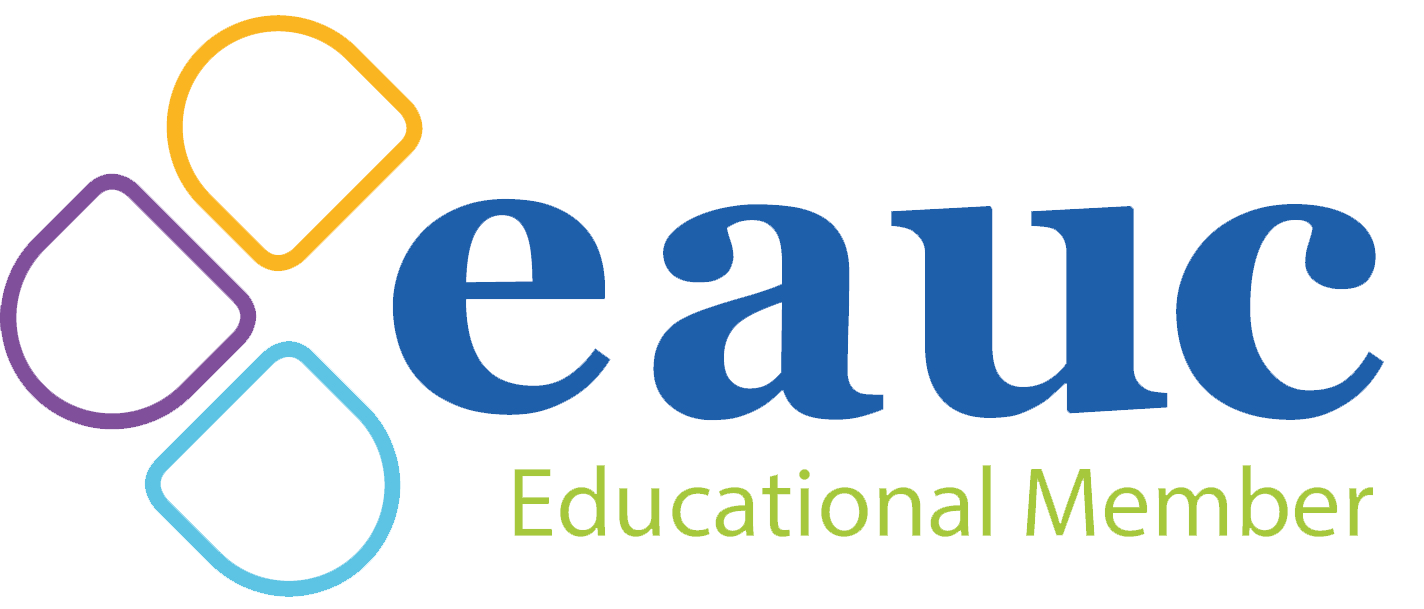
MA Education Studies
Welcome to the Masters in Education Studies.
This course is designed to enhance the ongoing professional development of educators, preparing them for leadership roles, Headship qualifications, and advanced study at the professional or doctoral level. At University Centre Colchester, we take pride in offering extensive support to our students while fostering the development of critical research and analytical skills needed to explore contemporary issues, concepts, and debates.
This is a 2-year part time study programme whereby the delivery is predominantly online 1 evening per week.
Course IntroductionModulesEntry RequirementsGraduate CareersAdditional
Your profile
You are passionate, patient and driven to inspire the next generation. You don’t just meet expectations – you exceed them. Now you’re ready to take the first step towards a fulfilling lifelong career in education.
Your subject
In education, you have the opportunity to make a lasting impact on people’s lives. Every day, you’ll have the change to inspire students and colleagues, using your unique skills to give back to the community. Careers in this sector are diverse, ranging from teaching in various settings – such as schools, sixth forms, colleges, prisons, and hospitals – to becoming part of the next generations of managers and leaders.
Your course
You will develop the knowledge, understanding and expertise to ensure you have a successful career in the field of education. Your course will provide you with an understanding of the scope within the sector, while preparing you for a sustainable career. Modules reflect the multi-disciplinary nature of education and offer you valuable insight into the sector. Placements on some programmes will allow you invaluable practical experience and enable you to apply theory to real-life situations. You will learn from academics with extensive experience as practitioners and benefit from guest speakers across a range of educational organisations to broaden your understanding of current issues, along with teaching and management practices.
Your future
You will graduate as a confident and skilled advocate for education. As a newly qualified professional in the education sector, you could progress into a middle or senior management role in a school, college or university. You could also benefit from a career in administration, careers guidance, special needs, a role in an education authority or other associated organisations. Upon completion of an initial teacher training qualification, you will be eligible to follow a process of professional growth through the Society for Education and Training to gain Qualified Teacher Learning and Skills (QTLS) status.
Module title: Research Methodology (30 credits)
This foundational module introduces all students to the principles and practices of research methodology. It is designed to equip students with a solid understanding of research philosophy and methodology, which they will apply in three written assignments.
Through a combination of individual and group activities, students will delve into various research methodologies and ethical considerations. They will evaluate and critically analyse the most suitable
methods for their chosen research topics. By the end of the module, students will have designed a small-scale research project, guided by clear research aims, objectives and questions, and will have identified the most appropriate methods to achieve their project’s goals.
Learning Outcomes
On successful completion of this module a student will be able to:
- Critically analyse philosophical perspectives underpinning current educational research
- Critically evaluate a range of quantitative and qualitative research methodologies and their alignment with philosophical perspectives
- Demonstrate a thorough understanding of ethical issues relating to permission, anonymity, observation and documentation
- Propose an appropriate topic, focus and scope their own research project
- Manage a diverse range of scholarly activities effectively and independently
- Critically review contemporary research on critical issues in education, considering the ethical implications and influence of personal bias on the validity and generalisability of the findings
Module title: Critical Review of Teaching, Learning and Assessment (30 credits)
This module invites students to explore both formal and informal educational contexts, including their own and other educational structures, by critically examining the values and practices that underpin various organisations. It introduces key concepts and perspectives on social justice in education, emphasising how these ideas can influence teaching, learning and assessment. Through this exploration, students will gain a deeper understanding of the intersection between education and social justice and how these forces impact the educational experience.
Learning Outcomes
On successful completion of this module a student will be able to:
- Critically analyse theories and principles of inclusive learning and their application to the promotion of inclusive practice
- Critically evaluate the impact of current teaching, learning and assessment strategies on widening participation, inclusion and social justice
- Critically assess how the current socio-political values, attitudes and beliefs inform perceptions of race, gender and social class in the English educational system
- Review the debate on the impact of intersectionality in education settings and suggest strategies to address this issue
- Critically review contemporary research on critical issues in education considering the ethical implications and influence of personal bias on the validity and generalisability of the findings
- Critically evaluate the outcome of your research, acknowledge limitations and make recommendations related to the presented findings and analysis critically reflecting on the process of the research
Module title: Technology in Teaching and Learning (Optional) (30 credits)
This optional module empowers students to design a programme of study that reflects the growing importance of embedding computational thinking into teaching, learning and assessment. Computational thinking, essentially learning through problem-solving and algorithmic processes (Bundy, 2007) is becoming a crucial skill in modern education. In today’s educational landscape, the ability to effectively use, plan, design and deliver content using technology is vital for teachers, managers, leaders and students alike. As technology increasingly permeates daily life, both students and educators are expected to engage with digital tools.
Learning Outcomes
On successful completion of this module a student will be able to:
- Design an iterative programme of study on a chosen topic that applies learning design principles (including Laurillard’s Conversational Framework) and seamlessly integrates technology, including artificial intelligence (AI) and Generative AI, to enhance learning experiences and outcomes
- Critically analyse the role of the educator in effectively integrating their programme of study within a chosen educational environment, focusing on the impact of facilitating learning, overcoming barriers, and adapting to contextual needs
- Critically analyse the role of the learner in effectively engaging with the proposed programme of study focusing on the impact of facilitating learning, overcoming barriers, and adapting to contextual needs
- Critically evaluate the effectiveness of their own programme of study and assess its feasibility within a chosen sector, whilst identifying key elements that must be in place to ensure its transformative impact and sustainable implementation
- Synthesise key debates and emerging research surrounding the implementation of technology and AI in learning design and the subsequent integration within the classroom environment
- Engage in critical reflection to assess personal growth as an educator and use these insights to inform and enhance future teaching practice whilst considering the role of the educator as a result
Module title: Mental Health and Wellbeing in Education (Optional) (30 credits)
This module explores the theories and core values of mental wellbeing across key educational stages, from Primary to Higher Education, with a focus on the experiences of students, teachers and leaders. A central theme is balancing professional experience with ethical practice to support all stakeholders in widening participation, promoting inclusivity, social justice and sustainable education.
Students will examine the varied manifestations of mental health issues, including diagnosed conditions, substance misuse, eating disorders, early intervention and comorbidity, and their direct impact on the educational environment. The module also addresses the broader implications of these issues on the educational system as a whole.
Learning Outcomes
On successful completion of this module a student will be able to:
- Critically review existing policies and processes that support the mental health and wellbeing of teachers
- Demonstrate a critical understanding of the intersectionality of discrimination on the development and maintenance of mental health needs
- Critically review the support structures, in place, within your organisation
- Critically reflect on potential areas of collaboration and pathways that could be created to support individuals with mental health and wellbeing challenges to promote inclusivity, social justice and widen participation
- Critically evaluate the outcome of your research, acknowledge limitations, and make recommendations related to the presented findings and analysis, critically reflecting on the process of the research
- Critically review contemporary research on critical issues in education, considering the ethical implications and influence of personal bias on the validity and generalisability of the findings
Module title: Managing and Leading in Education (30 credits)
In this module, students will delve into various leadership theories, concepts and models, applying them to familiar educational contexts to evaluate their relevance. This exploration will enable students to reflect on and assess their own leadership potential, fostering their growth as independent and critical thinkers.
Assessment for this module is based on a research project, providing students with the opportunity to integrate both theory and practice into a topic of their choice.
Learning Outcomes
On successful completion of this module a student will be able to:
- Critically analyse and evaluate the impact of contemporary challenges on educational organisations and their leadership strategies
- Explore and critically evaluate transformative leadership models, with a particular focus on communication and interpersonal skills that drive systemic change in educational settings
- Critically assess the leadership and management skills required for effective performance in current or future roles, integrating insights from reflective practice, theory and feedback
- Synthesise and apply transformative leadership theories to organisational leadership, critically assessing their relevance to personal leadership practice, future research and ongoing professional development
- Demonstrate a thorough understanding of ethical considerations in educational leadership
- Demonstrate the ability to engage in critical thinking, using analytical skills to evaluate complex information, theories, and feedback, and to develop well-supported arguments and conclusions
Module title: Dissertation (60 credits)
The dissertation represents a significant academic achievement, consisting of two key elements: an extensive literature review and the student’s original contribution to the field. This contribution may take the form of primary research with an analytical evaluation or a detailed scholarly comparison and reconciliation of existing research perspectives.
This module is designed to help students synthesise the academic skills they have developedthroughout their studies, providing a platform where professional practice, scholarly insights,and academic evaluations converge in a comprehensive, large-scale study.
Learning Outcomes
On successful completion of this module a student will be able to:
- Conceptualise, design, and conduct an independent research project on a topicrelevant to their educational practice or interest
- Critically evaluate and synthesise complex theoretical concepts and research findings from multiple sources
- Apply appropriate research methodologies and analytical techniques to address specific research questions or objectives
- Produce a cohesive, well-structured dissertation that demonstrates originality of thought and contributes to the existing body of knowledge in education
- Reflect critically on the research process, including ethical considerations and limitations of the study
- Evaluate and critically articulate implications of their research for educational practice, policy or further research
- A degree at 2:1 or above or substantial vocational and/or industrial experience
- Satisfactory completion of the application and interview process
- Two satisfactory references, one academic and one vocational
*UCAS Tariff points where shown, are for entry on to higher education programmes starting from September 2025.
International applicants
If English is not your first language you will need an IELTS score of 6.0, with a minimum score of 5.5 in each component (Reading, Writing, Listening and Speaking), or an equivalent English Language qualification.
Additional requirements for International Students:
- You must provide evidence of having been in general education for at least 10 years and of having studied within the last five years
- a face-to-face or video call interview is required before an offer is made
Typical progression routes after the course could include middle management of a school, senior administrator within the Education Sector as well as PhD or EdD level study. (This course is being developed in consultation with the Association of Secondary Head Teachers, Essex).
Timetables: Timetables are normally available one month before registration. Please note that while we make every effort to ensure that timetables are as student-friendly as possible, scheduled teaching can take place on any day of the week. Where possible we will look to schedule timetabled sessions for full-time courses over two days per week, and part-time courses over one day per week.
Teaching and Learning: You are taught through a combination of lectures, seminars and practicals. Seminars enable smaller group discussions to develop understanding of topics covered in lectures.
When not attending lectures, seminars and practicals or other timetabled sessions you will be expected to continue learning independently through self-directed study. Typically, this will involve reading journal articles and books, working on individual and group projects, undertaking research in the library, learning zone or technical learning resources, preparing coursework assignments and presentations, and preparing for examinations
Assessment: The course provides you with opportunities to test your understanding of the subject informally before you complete the formal assessments that count towards your final mark. Each module normally contains at least one piece of practice or ‘formative’ assessment for which you receive feedback from your tutor. Practice assessments are developmental and any grades you receive for them do not count towards your module mark.
There is a formal or ‘summative’ assessment at the end of each module. Assessment methods include written examinations and a range of coursework assessments such as essays, reports, portfolios, performance, presentations and your final year major project. The grades from formal assessments count towards your module mark.
Feedback: You will receive feedback on all practice assessments and on formal assessments undertaken by coursework. Feedback is intended to help you learn and you are encouraged to discuss it with your module tutor.
Disclaimer
All Fees and prices shown on the website are for courses starting in the 2025-26 academic year and are correct at the time of entering/printing information, however these may be subject to change. The College cannot accept legal or financial liability as a result of any such changes.
The course information describes programmes offered by University Centre Colchester at Colchester Institute. The College takes all reasonable steps to provide courses as described, but cannot guarantee provision. The information is for guidance and does not form any part of a contract.
The College reserves the right to update and amend information as and when necessary. University Centre Colchester at Colchester Institute will do its best to provide the courses shown, but may have to modify or withdraw a course depending on customer demand and other factors.




















